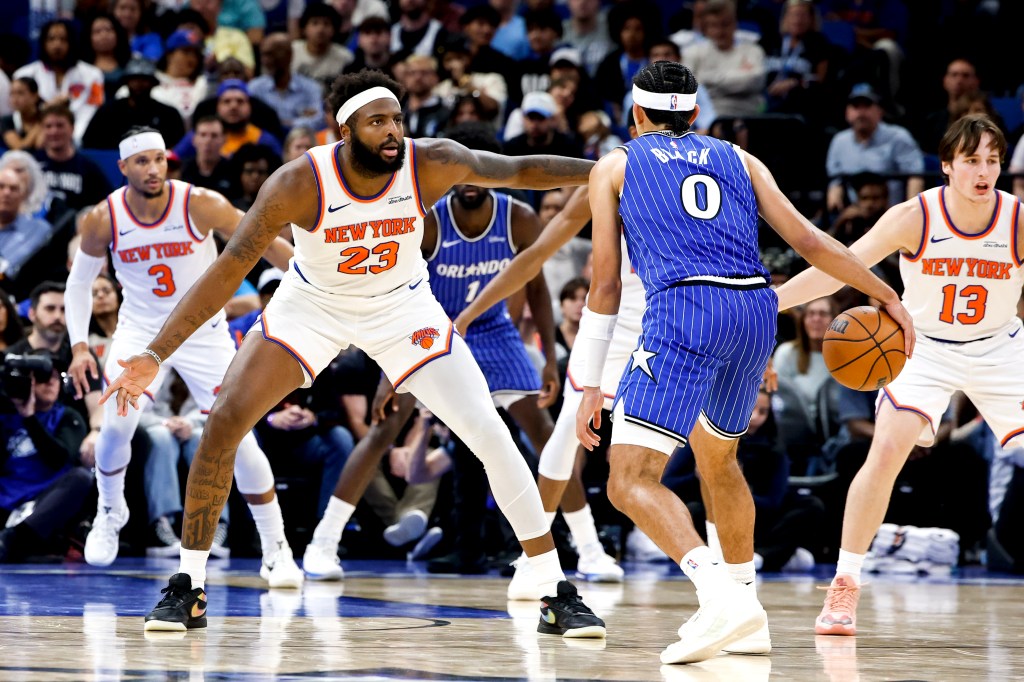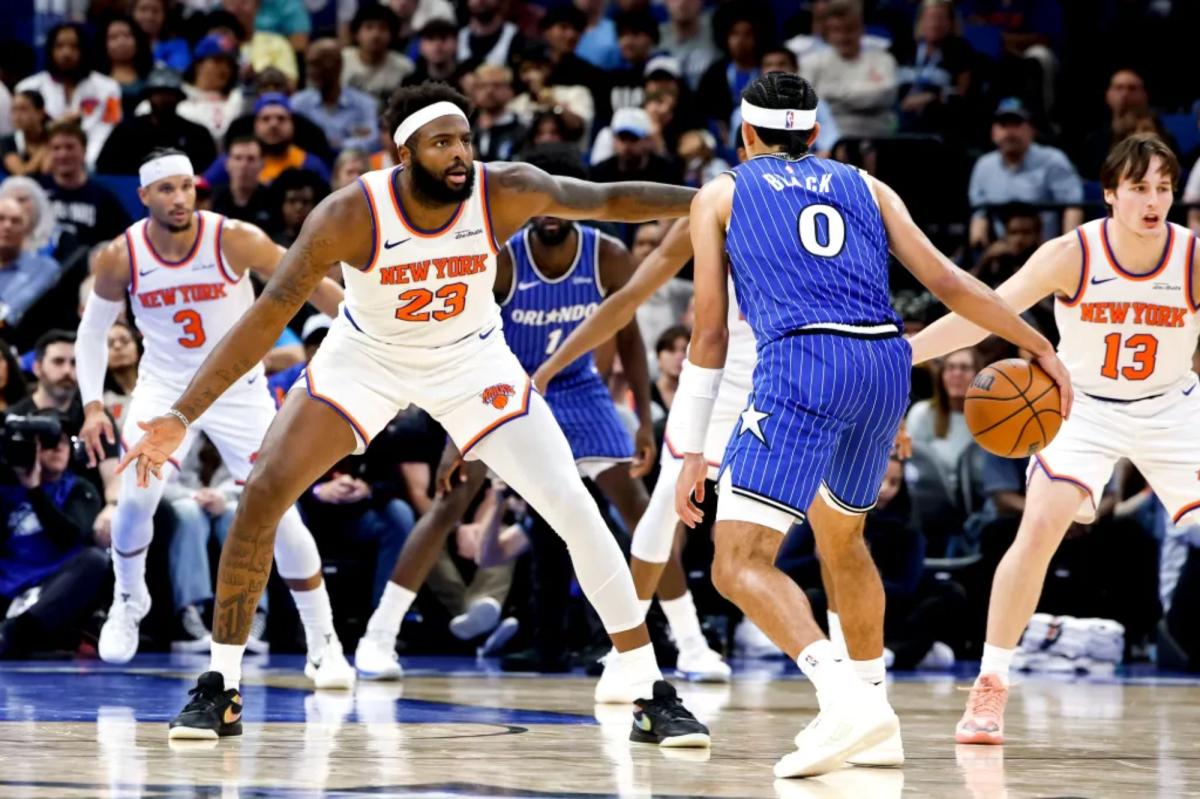Mike Brown revealed last week that Mitchell Robinson’s agent is part of the group dictating the load management program, which is aimed at preserving the center’s long-term health but was also shrouded in mystery to start this season with four consecutive DNPs.
“[Knicks VP of Sports Medicine Casey Smith] is the one who dictates it along with Mitch and doctors and Mitch’s agent,” Brown said before Wednesday’s victory over the Mavericks. “So whatever they tell me, I’m just recycling what Casey says to Mitch, but I try to communicate with Mitch as much as possible.”
Brown has been publicly deferring to Smith on Robinson’s minutes restriction for a while, but the reference to the agent was a new wrinkle. It’s also interesting because Robinson, 27, is a free agent after the season as the only Knicks starter on an expiring contract.
His next deal will be tied to his health, and it’s both telling and wise that the Knicks haven’t been aggressively pursuing an extension as Robinson gets closer to hitting the unrestricted market.
Robinson’s agents are listed as Thad Foucher and Joe Smith.
Foucher, a veteran who also represents Knicks backup center Ariel Hukporti, did not respond to a request for comment.
Robinson, who was ruled out of Monday’s game because of an illness, had fired five agents in two years before hiring Foucher and Smith in 2020. They negotiated his four-year, $60 million contract in 2021, which has alternated between a steal and a bad contract for the Knicks — depending on Robinson’s health and his stretches of poor conditioning and unavailability.
In May 2024, for instance, Robinson underwent a procedure on his ankle that was initially described as minor. He was supposed to return for the start of the 2024-25 campaign. Instead, he missed the first four months with no explanation other than a reference to a plan prioritizing long-term health.
This season, Robinson played in the preseason but was shelved for the first four regular-season games. Again, there were only denials of a setback. He has since been operating on a minutes restriction plan — which Brown has declined to identify as a minutes restriction, only a load management plan — and that recently increased to over 20 minutes per game.
 Mitchell Robinson #23 of the New York Knicks defends Anthony Black #0 of the Orlando Magic at mid-court. Getty Images
Mitchell Robinson #23 of the New York Knicks defends Anthony Black #0 of the Orlando Magic at mid-court. Getty Images
Still, Robinson, who is cagey and unrevealing about his injuries and restrictions, has yet to play in both games of a back-to-back set and only once this season logged over 20 minutes heading into Monday’s game against the Nets. He had been used in short bursts while flashing both his elite offensive rebounding and his greatest flaw: poor free-throw shooting.
After the close victory in Dallas — where Robinson bricked two foul shots down the stretch — Brown said the center was not part of the regular crunch-time rotation.
“Obviously, he’s got to make free throws. We have a rotation and most times in the rotation at the end of games, Josh [Hart] is going to be out there [at power forward with Karl-Anthony Towns at center],” Brown said. “So [Robinson] won’t be out there a ton, but if we need a rebound, he’s going to be out there.”
What’s happening on and off the Garden court
Sign up for Inside the Knicks by Stefan Bondy, a weekly exclusive on Sports+.
Thank you
None of this seems conducive to a long-term, lucrative deal in free agency. But if Robinson’s agent is involved in when the center plays or doesn’t, the next contract is probably factoring into decisions.
As Robinson has repeated, the goal is to be healthy when it really matters — in the playoffs and beyond, including during summer negotiations.
“It was [frustrating] at first, but after thinking about it a lot, obviously I don’t want to miss no playoffs or later on in the future,” Robinson said. “Whatever’s best, just going to stick to it.”

